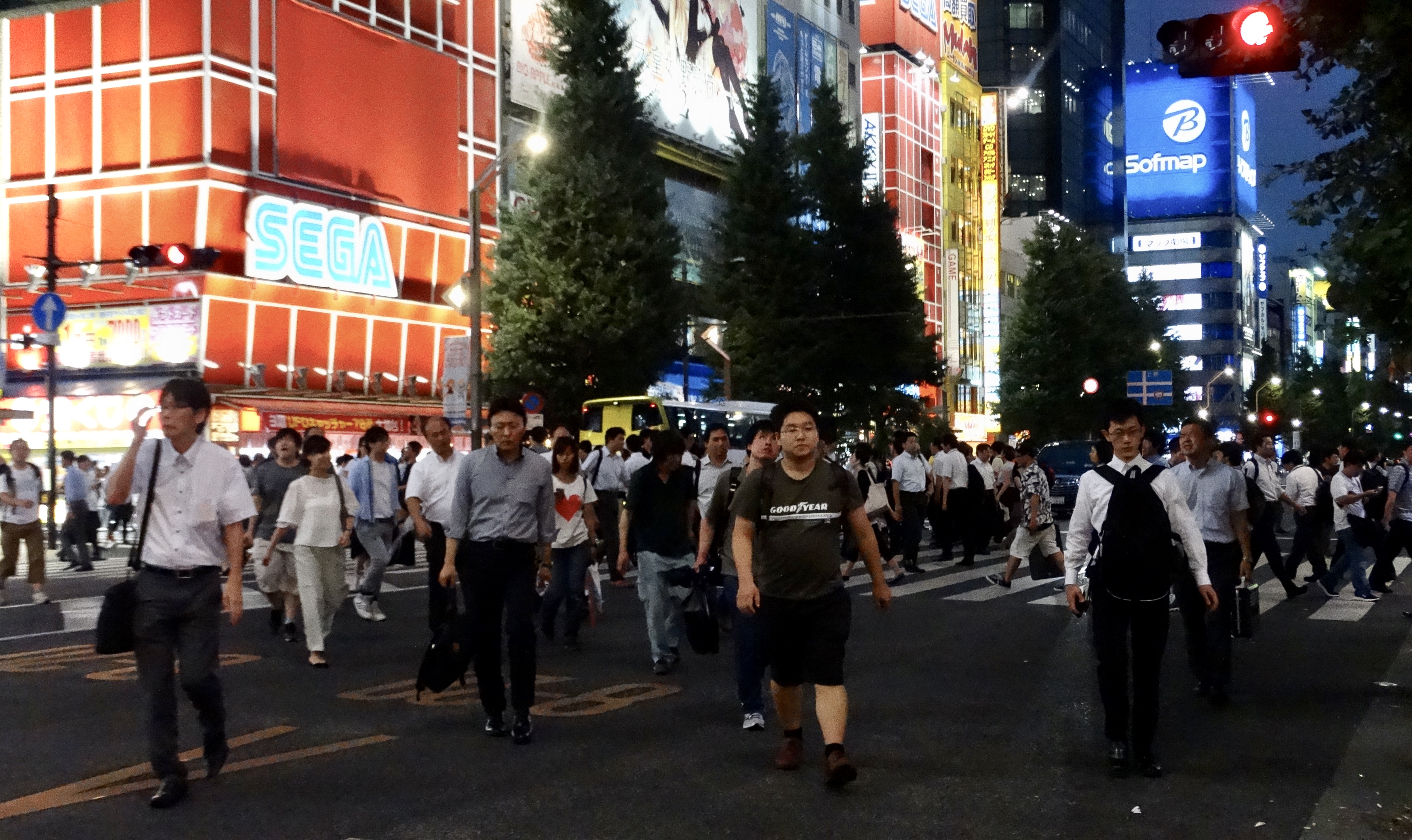RETRO GAMING IN JAPAN
I grew up in the heyday of computer games. Sega and Nintendo were battling it out for the hearts and minds of kids and the wallets of their parents. Fast forward 25 years and I’m on my way to Osaka, Japan. I’ll stay there for a couple of nights before moving on to a town nearby called Izumi City. Here, I’ll reconnect with those halcyon days from the early nineties with some retro gaming.
The Retro Gaming Project
My host for this particular volunteering project started a video game refurbishment company called Radiostock, in his early twenties. As the business grew, so did the need to find enough warehouse space for the prodigious inventory of consoles, games and controllers. I was going to help him expand the storage capacity preparation for the inaugural Retro Game exhibition.
I was once the proud owner of a Gameboy, testament to my success in pestering and cajoling my parents. The problem was; I wasn’t very good at gaming. I never completed Super Mario and Tetris just seemed like a futile and frantic construction project with very little reward. It was with this backdrop that I hoped to impress a man that had dedicated his adult life to the gaming industry.
The Salary Man and the Renegade
The ‘salary man’ is a famous moniker both in Japan and abroad. It describes the loyal and industrious corporate employee, single-minded in their dedication to ascending professional hierarchies; never deviating or questioning. These features may not be particular to Japanese culture. Indeed, adherents to the metropolitan ‘rat race’ across British cities could probably find plenty of common ground. Nevertheless, the sea of neat haircuts, black trousers and pressed white shirts getting on and off the punctual trains at Osaka station during rush hour, was something to behold.
My host couldn’t be further removed from this model. He dropped out of school at 16 and learned the craft of making traditional artisan noodles. Then, he started fixing discarded or unused consoles and selling them on in his spare time; and seeing a potential market for retro games started his business. Japan’s appetite for virtual entertainment is world famous. I still remember the sensational stats about the time average Japanese school child spent playing computers on a weekly basis. The hours and hours commentators alleged they spent on homework further compounded my horror. The national infatuation meant that my host had both an endless supply of materials to repair, and continued demand for the finished product.
Japanese vs British Culture
So, the days fell into a routine which started around 8am and finished around 5pm. The Japanese work ethic comes with quite a reputation. But I found my host’s expectations fair and consistent – two characteristics that are sacrosanct amongst the locals. For many people who come to Japan the allure is in its eccentricities; the seemingly incompatible co-existence of tradition and progress.
British and Japanese culture can at first seem to be completely divergent. The unchecked individualism in the UK, contrasted by the obedient collectivism of Japan. Yet, I think we also share some common ground, particularly when it comes to our shared reverence of queuing and orderly embarking and disembarking of buses and trains. Trains are, of course, a source of pride for both our nations. In Britain, it’s more nostalgic as our golden age ended around the same time as our influence as an imperial force in the world. Japan on the other hand, have flexed their engineering muscles and shown the rest of the world what train travel can be.

It’s the more subtle aspects of Japan’s culture that can be just as startling. As my host and I worked in the afternoon heat of July, we both quietly anticipated the point at which we could conclude the day’s tasks and open a cold beer. A long drink, head tilted, eyes rolling back in ecstasy.
The 5pm Bell
In smaller towns and rural areas of Japan, between 4-6 pm, loudspeakers broadcast the instrumental part of a nursery rhyme at high volume for around 30 seconds. I asked my host about this and he told me it was to signal to the local populace that the working day had come to an end; and it was time to leave the office, or for kids to go inside before dark. Of course, neither of these applied to us as the sound of the ring pull breaking the seal on our cans had preceded the 5pm soundtrack. What’s more, the endeavour of Japanese professionals and school students means that very few people are leaving their desk that early, or having the luxury of playing outside after classes have finished.
A little further investigation lead me to discover that there was a more pragmatic reason for the music. Although the locals call it the ‘5pm bell’ the actual term is the less catchy, ‘local government disaster administration wireless broadcast’. The daily nursery rhyme is really a way of testing the robustness of their emergency warning system; and given the region’s geological and meteorological proclivity for catastrophe, it makes perfect sense. So the children’s music is merely a technical test. But it did get me wondering what music they select if a tsunami is on its way. I think I’d go with an orchestral piece accompanied by a choir: Bach, St Matthew Passion, or Handel’s Zadok the Priest. It’s more likely that a very loud siren and some instructions for evacuation would be be played though.
The Finished Product
After two weeks, we met our objective of increasing the warehouse storage. We celebrated by ramming the shelves full of boxed consoles spanning generations of gamers; a towering nod to Japan’s contribution to what is still a multi-billion yen industry. As a gamer, my participation has been limited. However, as I stared at columns of SNESs, N64s, Famicoms, Megadrives and Gameboys, I felt that I had made my peace with the levels and monsters that I couldn’t overcome as a child.
